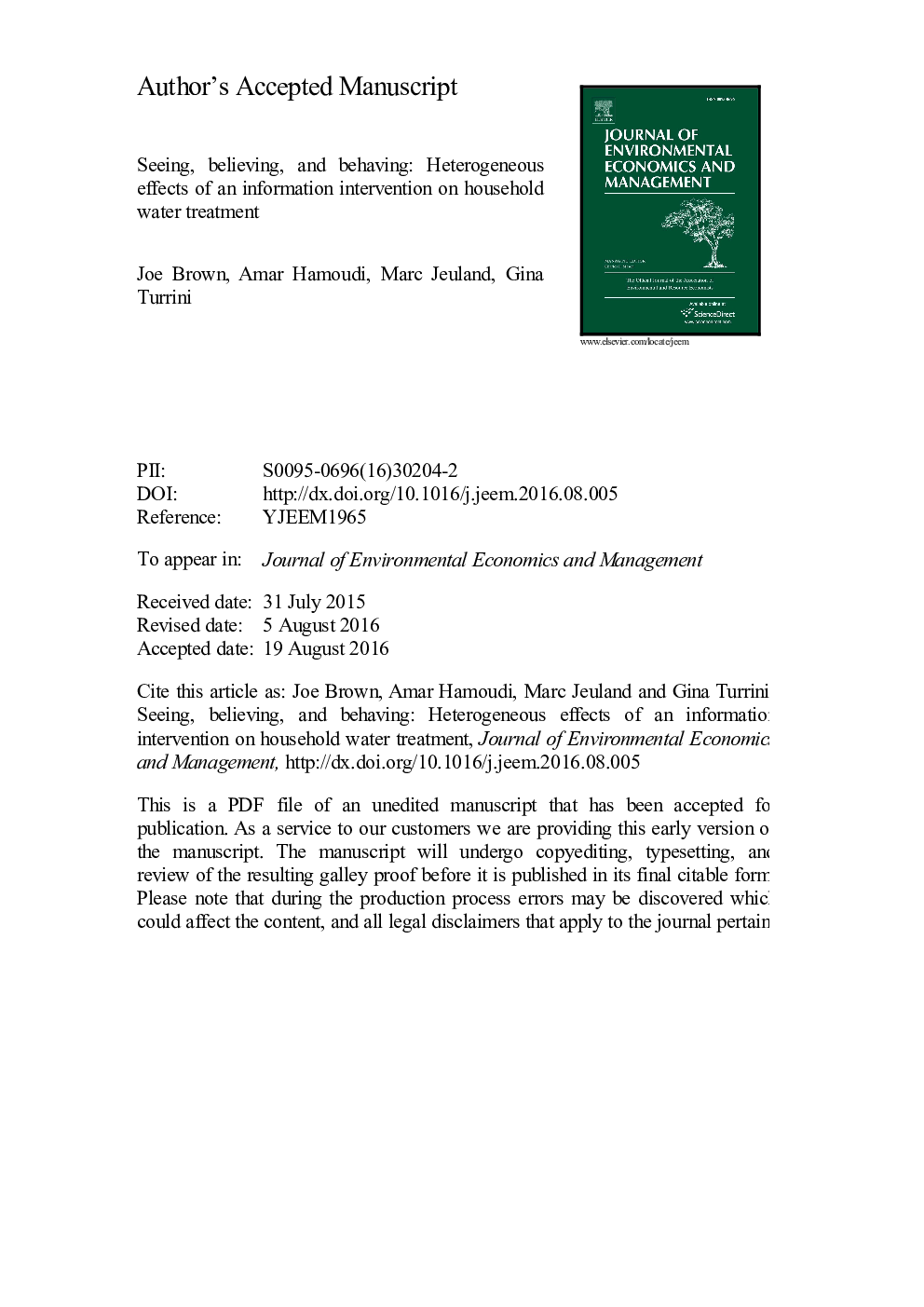| Article ID | Journal | Published Year | Pages | File Type |
|---|---|---|---|---|
| 7361542 | Journal of Environmental Economics and Management | 2017 | 69 Pages |
Abstract
Providing information about environmental health risks only sometimes induces protective action. This raises questions about whether and how risk information is understood and acted upon, and how responses vary across contexts. To characterize such variation, we stratified a randomized experiment related to household water quality across two periurban areas in Cambodia. When we showed specific evidence of water contamination to lower-SES households who were initially more optimistic about water safety, they altered their beliefs about health risk and increased their demand for a treatment product. However, demand for the treatment product among higher and initially more pessimistic SES households did not change significantly. These findings highlight the importance of better understanding heterogeneity in the specific drivers of responses to health risk information.
Keywords
Related Topics
Social Sciences and Humanities
Economics, Econometrics and Finance
Economics and Econometrics
Authors
Joe Brown, Amar Hamoudi, Marc Jeuland, Gina Turrini,
